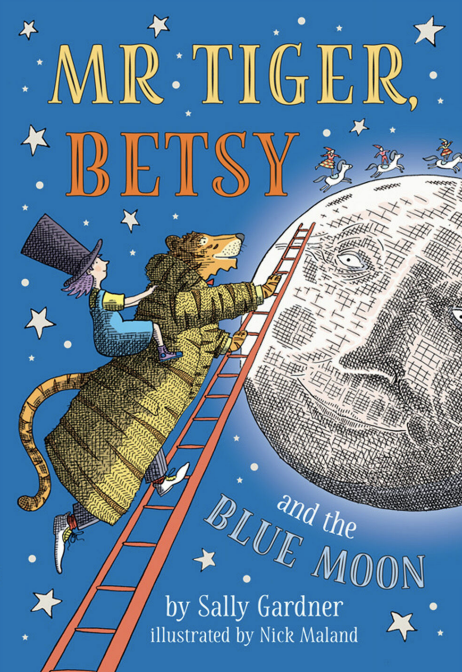What many tutors will have noticed is that many structured literacy strategies require frequent repetition because they focus remediation on tasks that are especially difficult for many dyslexic students – the automatic identification of the phonemes that make up words.
Not the Standard Track: Extracurriculars and Work Experience [Premium]
There are many ways of getting from A to Z and many of them don’t require a 4.0 GPA and elite school tracks. Dyslexics as a group may have trouble following the traditional route to their dream career because many of their academic strengths are late-blooming.
The Gift of Seeing People and Events from Multiple Perspectives [Premium]
There is a talent cluster that we’ve seen among dyslexics in diverse backgrounds, and it’s a gift of being able to see people and events from multiple perspectives. Within the MIND strengths framework, this could be in I for Interconnected Thinking, N for Narrative Thinking, or D for Dynamic Thinking. It is a gift to be able to visualize or or imagine a simulation of how people and events can be seen from different perspectives, and it allows empathy for people and situations that others might miss, or a connection of events that others see separately, and predictions that provide positive opportunities for bettering one’s situation or the world, or staving off problems. You might notice children who seem unusually empathetic or observant about the […]
Is There Anything I Shouldn’t Do? [Premium]
We’re often asked to give suggestions of activities or jobs that might be bad matches for people who are dyslexic, but the best answer is almost always, “It depends.” Dyslexic people tend to excel in creative activities that may include some or all of the MIND strengths (Material Reasoning, Interconnected Reasoning, Narrative Reasoning, Dynamic Reasoning). Difficult activities for dyslexics tend to include secretarial work because of its demands on proofreading and transcription, and rote repetitive jobs that require that tasks be done the same way every time. However, there are few absolute prohibitions when it comes to different activities or fields. In many fields or careers, challenges may arise, but in most cases these can be overcome with workarounds, technology, partnering with someone else, or […]
Discovering Strengths [Premium]
How do I develop my strengths? How do I develop my strengths in my kids? We get asked these two questions a lot. It does seem that if you ask people how they found their careers or life’s passions there are twists and turns and there seem to be serendipitous events that make a person take one path vs. the other. But it probably is a good idea to have more conscious thought involved with careers or it may be more likely that you (or your child) could end up in an unsatisfying and poorly fitting career. HOW DO MIND STRENGTHS FIT INTO THIS PICTURE? Dyslexic MIND strengths were the result of surveying this community and comparing them to non-dyslexics. It doesn’t mean […]
The Mind Map in Your Brain [Premium]
Among professionals who work with dyslexic students, there have long been recommendations to mind map ideas. In recent basic neuroscience research, there’s been a growing understanding why. Neuroscientists have long studied how knowledge seems to work in the brain with schemas -or patterns that can form a flexible reference base that helps us understand new or existing knowledge or make decisions for how to act. But these schemas have largely been studied in a context of verbal memory – with only more recent insights into “the other schemas.” As it turns out there are a lot of other schemas and processes involving schema-making. They are non-verbal and spatial – and that is where the implications for dyslexic people may come into play. If you are […]
What’s the Point of the Dyslexic Mind? with Dr Brock Eide [Premium]
This webinar was rescheduled from a planned presentation at Cambridge University. Although dyslexia has traditionally been defined in negative and narrow terms, these definitions are poorly matched to the breadth of research on dyslexic children and adults. Here the Eides present their case that dyslexia should not be defined solely as a defect or deficiency, but rather as a cognitive specialization – that prioritizes episodic cognition.
Revised and Updated The Dyslexic Advantage: Q & A with Dr. Brock Eide
* MIND is an acronym from the first edition of Dyslexic Advantage. It stands for Material Reasoning, Interconnected Reasoning, Narrative Reasoning, and Dynamic Reasoning. Q: It's been 11 years since the first edition of The Dyslexic Advantage was published. Why is it...
Competence and Confidence in the Early Years
"The more you know yourself, the more patience you have for what you see in others." - Erik Erikson In the late 1950's and early 60's, Erik Erikson, Harvard professor of Psychology, proposed 6 stages of psychosocial development that supplanted other theories of...
Great Storytellers
Dyslexic storytellers are among the greatest storytellers who ever lived. They weave their stories in family get-togethers, business meetings, novels, screenplays, and poems, films, illustrations, cartoons, and paintings. When we first began learning more about...
Building Spatial Talents [Premium]
“…Spatial reasoning has been key to numerous scientific advances, such as the discovery of the double-helix structure of DNA and the epidemiological research using maps to discover the true source of cholera outbreaks. It is also essential to many 21st-century careers, particularly in science and engineering… But are we able to see and support these particular kinds of talent in our classrooms?” — Lakin and Wai, Phi Delta Kappan What are spatial talents? In short, they are talents that involve visualizing objects and places in 3d and being able to manipulate them at will. These are talents that seem rich within the dyslexic community, but may be overlooked or neglected in conventional school activities. It’s an important strength set to recognize because it tends […]
New to Dyslexia [Premium]
More people are finding out that they’re dyslexic, so it seemed like a good time to write a big picture of dyslexia for new members. DYSLEXIC STRENGTHS First of all, there seem to be intrinsic strengths associated with dyslexia and not simply weaknesses or impairments. Understanding the strengths and positive differences can help people navigate through the most difficult periods of schooling and life. We discuss dyslexic MIND strengths in more detail in our book, The Dyslexic Advantage, but briefly, these strengths include reasoning through materials and physical experiences, reasoning through the interconnection of ideas and knowledge, storytelling, and reasoning through visualizations and mental simulations. Dyslexic learning may conflict with conventional classroom instruction because traditional teaching may emphasize passive learning and rote memorization over […]

![MIND Strengths for Tutors: Material Reasoning [Premium]](https://www.dyslexicadvantage.org/wp-content/uploads/2024/04/Material-Reasoning-Premium-2-400x250.jpg)
![Not the Standard Track: Extracurriculars and Work Experience [Premium]](https://www.dyslexicadvantage.org/wp-content/uploads/2024/04/Extracurriculars-and-Work-Experience-Premium-1-400x250.jpg)
![The Gift of Seeing People and Events from Multiple Perspectives [Premium]](https://www.dyslexicadvantage.org/wp-content/uploads/2024/02/The-Gift-of-Seeing-People-and-Events-from-Multiple-Perspectives-da-400x250.jpg)
![Is There Anything I Shouldn’t Do? [Premium]](https://www.dyslexicadvantage.org/wp-content/uploads/2024/02/is-there-anything-not-do-400x250.png)
![Discovering Strengths [Premium]](https://www.dyslexicadvantage.org/wp-content/uploads/2023/11/Discovering-Strengths-Premium-2-400x250.jpg)
![The Mind Map in Your Brain [Premium]](https://www.dyslexicadvantage.org/wp-content/uploads/2023/06/The-Mind-Map-in-Your-Brain-400x250.png)
![What’s the Point of the Dyslexic Mind? with Dr Brock Eide [Premium]](https://www.dyslexicadvantage.org/wp-content/uploads/2023/05/Screen-Shot-2023-05-21-at-7.50.20-AM-400x250.png)



![Building Spatial Talents [Premium]](https://www.dyslexicadvantage.org/wp-content/uploads/2022/10/Building-Spatial-Talents.png)
![New to Dyslexia [Premium]](https://www.dyslexicadvantage.org/wp-content/uploads/2022/07/New-to-Dyslexia-Premium.png)













